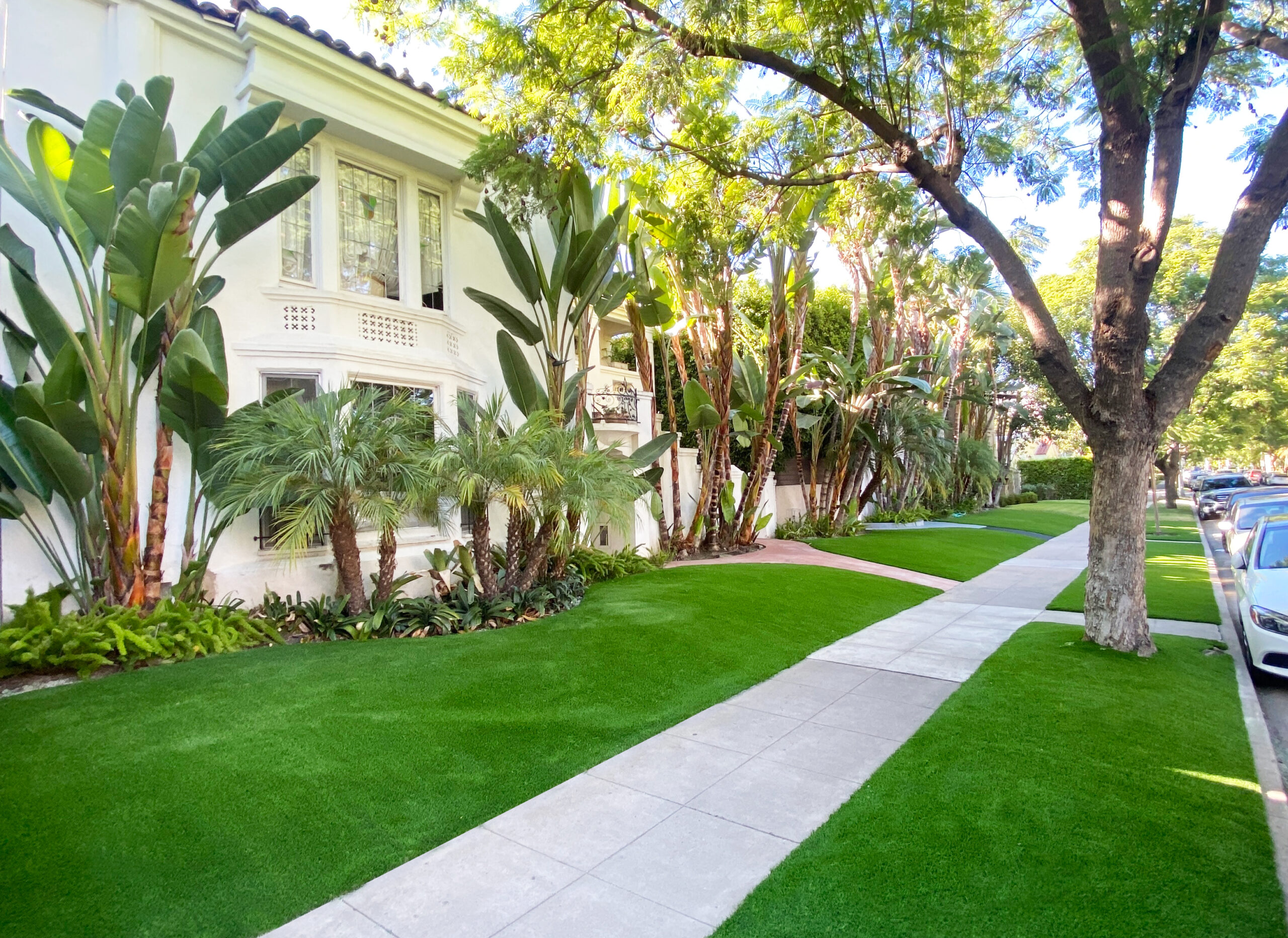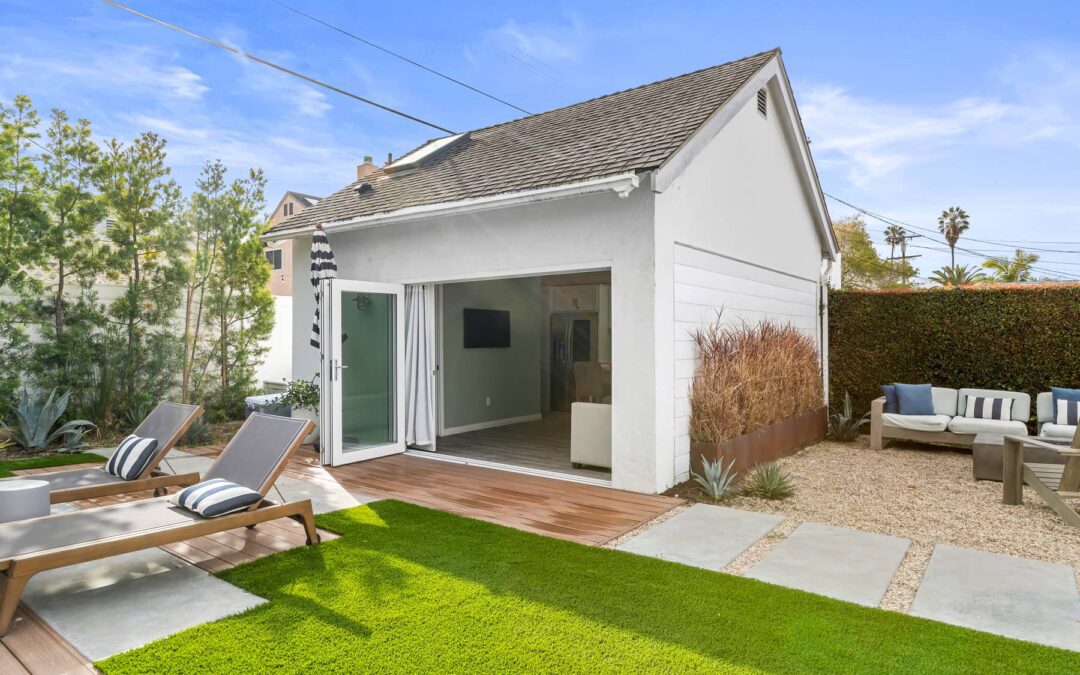Artificial grass has become a popular option for rental properties in recent years. There are several benefits to using artificial grass in rental properties, making it a smart choice for landlords and property managers.
Artificial grass in rental homes has a number of advantages, including reduced maintenance requirements. Artificial grass takes a lot less upkeep than natural grass, which needs frequent watering, mowing, and fertilizer. This reduces the amount of time and money that landlords and property managers must invest in maintaining the lawns of their rental homes. This is particularly beneficial for residences with substantial grass areas because maintaining a natural lawn can be expensive, time consuming and warrant unwanted fines.
The endurance of artificial grass in rental houses is another advantage. As a result, it can tolerate high foot traffic and is less prone to sustain damage or fast wear out. This can be especially helpful for rental homes in areas with plenty of foot activity, including those close to parks or schools. Because the lawn won’t deteriorate quickly and will need to be replaced less frequently, landlords and property managers can rest easy.
Rental homes might benefit from artificial grass to enhance their appearance and appeal to potential tenants. A well-kept lawn may significantly improve a building’s curb appeal, and artificial grass can offer a beautiful, green lawn year-round without much work. More tenants may be drawn to the property as a result, increasing occupancy rates and rental income for landlords and property managers.
Artificial grass is an additional environmentally beneficial choice for rental properties. It conserves water, which in California’s doubt prone climate is a must. Artificial grass uses less chemicals, and doesn’t need to be mowed, which may result in fewer mower emissions. Landlords and property managers that wish to attract environmentally concerned tenants might use this as a selling factor. Also installing artificial grass is a one time project meaning no regular yard maintenance needed. This also means no nosey equipment to disrupt your tenants weekly.
Last but not least, artificial grass installation may initially cost more than natural grass, but over time, by lowering maintenance costs and boosting occupancy rates, it can end up saving landlords and property managers money. The resilience of artificial grass also means that it will endure longer, saving money on replacement costs.


